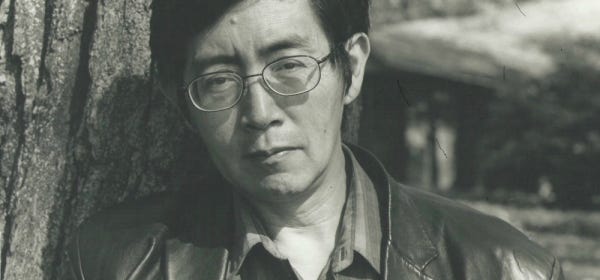I wanted to start by asking you about your title of your most recent book: The Past. I felt the great sting of jealousy that for me as a writer is always important information around names and titles. I think the title is so genius in and of itself, though of course it does so much specific and even anguished work in your collection. How did the journey for this book’s handle come about? Were there other possibilities?
I know this sting (part pang of recognition, part delight, part OMG) well, so thank you, firstly! And also for recognizing that there is some anguish, the exact right word, in the bigness of what it's trying to name and hold. I did have other titles, one was the title of the last poem in the book “Annual Air,” which I still think would’ve been a fine book title as both air and anniversaries/repetitions are such important motifs for me. But I’d ALWAYS wanted to title a book something dumbly big and boldly literal, the name of the whole WHAT in the question “what do you write about?” The poems are about the past, every kind of past, as a literal time and an emotional void, a set of facts and ongoing impossible fantasies. All past(s) welcome. The ones I lived and the ones I missed. I just didn’t want to specify. I thought it’d be so nice and elegant to name them all at once. No hierarchies of kinds of past(s). And no imagery or metaphor quite yet. Just the name of IT, of my big WHAT, almostly vulgarly so...
The Past opens with an epigraph from Bei Dao (one that, cleverly, is about opening a book). Could you tell me a little about discovering Dao’s work, what it means to you?
I’m not sure when I discovered Bei Dao’s work, though I’m fairly sure that the publication of The Rose of Time (his new and selected bilingual edition, amazing, from New Directions) had something to do with it, and that when I did discover it I felt such a gratitude to the many careful great translators he’s had over the years, all of whom have taken great care with his work. I have never read anybody who writes “the past” like Bei Dao, with such an embrace of its irony, surrealism, beauty, fragmentation, and (at times) deeply cruel rejection of our human wish to even put language to it. All this animates and agitates his lyricism, it doesn’t arrest it, resulting in prickly jagged imagery that I just can’t get enough of. Readers might try Black Map, translated by Eliot Weinberger, to hear/see/read what I mean. It changed my world, discovering a poet of such subtlety and boldness. At times his imagery is so “opaque” that it feels subversively direct. He taught me that you don’t have to choose.
I love the sagacity of “you don’t have to choose.” Reminds me of a monograph on Emily Dickinson called Choosing Not Choosing. I wanted to ask you first when you began writing these poems and organizing this collection. It’s structured as I see it in three sections or movements. Do you put certain language to how you divide a book of poems? Pledge, Tiananmen Sonnets, The Past. I love (of course) that you choose to end with The Past, rather than open. I’m curious to know any thoughts you had about that overall choice.
I started writing these poems in the year(s) leading up to June 1, 2019, which was the 30 year anniversary of my life in this country, and then I wrote them across and past that threshold, importantly. It was an anniversary that I sort of dreaded and welcomed at once, I wanted it to “mean” something, and I felt part of that meaning was something bad about me for having been “away” so long. As if there was a life there to return to...



